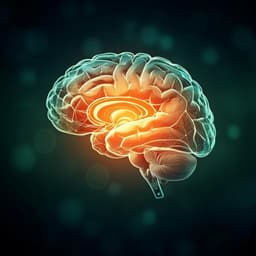
Medicine and Health
Differences in regional brain structure in toddlers with autism are related to future language outcomes
K. Duan, L. Eyler, et al.
Discover how early brain alterations in autistic toddlers can predict future language abilities, uncovering a complex interplay between brain structure and autism symptoms. This groundbreaking research was conducted by Kuaikuai Duan and colleagues at the Autism Center of Excellence, University of California, San Diego.
Related Publications
Explore these studies to deepen your understanding of the subject.







